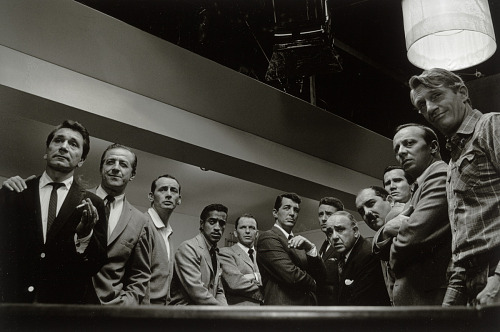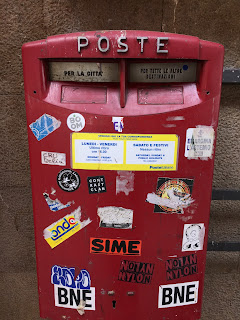In Charlie and the Chocolate Factory, for instance, Augustus Gloop has ceased to be "fat" and is now "enormous," a loss in nuance if not meaning. Meanwhile the Oompa-Loompas have been ungendered, shifting from "small men" to "small people" — I will leave it to the reader to decide whether that amounts to a promotion or not.
At least the "small" got to stay, so far. Puffin, Dahl's publisher, made hundreds of changes. Words like "ugly," "black," "white," "mad," and "crazy" have been shown the gate. Yet I was not alarmed — well, perhaps because growing up, I was not a particular Dahl fan — we were a Dr. Seuss family, who has had his own recent issues, as when And To Think That I Saw it on Mulberry Street was retired, in part for depicting "a Chinaman who eats with sticks," which is not hate in the usual sense.
Nor is it his best title, and so its loss isn't cause for concern. Publishing is a business, and you have to put the slop where the pigs can get at it. I'm more concerned about plucking the n-word out of "Huckebery Finn," a true distortion of the social context of the book and an offense against both literature and history.
Returning to Dahl, perhaps I held my tongue because cannons far bigger than myself were already blazing away.
Returning to Dahl, perhaps I held my tongue because cannons far bigger than myself were already blazing away.
"Roald Dahl was no angel but this is absurd censorship. Puffin Books and the Dahl estate should be ashamed," said Salman Rushdie, author of Satanic Verses and no stranger to official disapproval.
Honestly, I'm more worked up about some of the other elisions being committed in literature. Dahl barely registers compared to Vintage Books, which addressed "The Lolita Problem" raging in academia by re-issuing the 1955 novel under a new title, changing the nymphette whose seduction — whether she was the seductress or the seducer depends whether you are Humbert Humbert or not — that so rocked Eisenhower-era America so she now nearing middle age. The plot is the same, or at least similar, only Lolita is now 39 and goes by her birth name, Dolores Haze. The copy changes are small but significant:
“She was Lo, plain Lo, in the morning, standing five foot three in one sock. She was Lori in slacks. She was Dolly at the insurance company where she worked. She was Dotty on the dotted line. But in my arms she was always Dolores.”
If you don't remember the original, Vintage has added five inches to the girl ... er, woman's height — to account for growth, I suppose — banished the risque "Lolita" and changed her school to an Allstate office. I've read the new version, or tried to, and while yes, it conforms to current standards regarding acceptable age differences in relationships, it loses something. It just does. Judge me harshly if you must.
On the positive side, it isn't as if the past 65 years of the Lolita print run were unavailable — millions and millions of copies. They haven't plucked them from stores and libraries. At least not yet, though Florida is working on that.
Besides, everyone is not me. There seems to be a market for this kind of see-no-evil revision. If the Harper Lee estate can gather up the scribbled leftovers from the writing of To Kill a Mockingbird and publish an excrescence like Go Set a Watchman than there isn't much room for complaint.
In a similar vein, while I consider Lolita an amusing novel, it doesn't approach Nabokov's Pale Fire or Speak Memory. A greater vandalism, in my view, is what Signet did to Thomas Mann's Death in Venice, now marketed under the title Death in Venice Revisited. In turning Tadzio, the object of Gustav von Aschenbach's panting fixation, from a 14-year-old Polish tourist into a 24-year-old hotel pool attendant, the axis the book revolved upon is plucked away, and it goes spinning into triviality. While doing so does remove the stain of hebephilia — it would be pointless meddling otherwise —the shift also sets up for the inevitable romantic tryst. To me, Aschenbach pining away in the original — the two never speak, never mind indulge in the bedroom gymnastics detailed in the new edition — is far less objectionable than what transpires in "Death in Venice Revisited."
Plus, once you start updating culture, there is no end to it. With Ukrainians picketing the Joffrey's performance of "Anna Karenina" at the Lyric Opera House last fall (Tolstoy was a pacifist, but no matter) and Mothers Against Drunk Driving issuing that daft statement against all the vehicular drinking in On the Road, we risk either constant grappling over the misdeeds of characters which, remember, did not actually exist, or being saddled with literature so blanched of wrongdoing that it approaches the tedium of regular life. It's fiction folks. No real whale was injured in the creation of Moby-Dick, so needless to say, I think the PETA effort to get the Melville classic pulled from school library shelves is woefully misplaced. I'd be reluctant to mention any of this, except that it's worth remembering that not all the efforts at censorship are from prudish, history-averse right wingers trying to scour the world of identities that trouble them. The left is busy too.
There's more, but you get the idea. For a comprehensive list of books being challenged, click here.












